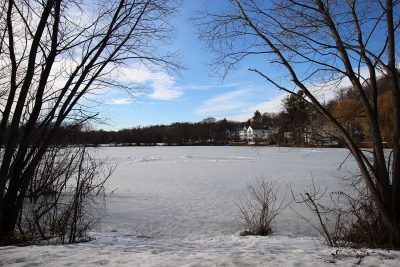Boston’s Community Preservation Committee recommended 67 new projects Monday that aim to create and preserve affordable housing, historically significant sites and public spaces throughout the city.

The Boston City Council will vote to approve funding, which totals more than $25 million in grants from the Community Preservation Fund.
The fund — created in 2016 with the passage of the Community Preservation Act — draws from a one percent surcharge on city property taxes. Applicants who wish to receive funds fill out an eligibility form and are selected by the Community Preservation Committee.
“The CPC chose projects that were going to be transformative in neighborhoods, help enhance the lives of residents and preserve historic resources,” city officials wrote in an email.
Alison Frazee, assistant director of the Boston Preservation Alliance and the co-chair of Yes for a Better Boston, said she believes historic preservation should receive as much money from the fund as possible compared to affordable housing and public spaces.
“The other two categories have capital funding through the city already,” she said. “They do have other sources of funding, unlike historic preservation, which has very, very few places to go to ask for money for brick and mortar work.”
Since the first recommendations were made in 2018, all 131 projects recommended by the committee went on to receive funding, according to city officials.
Frazee added that applications are usually greater than what the City can fund in a given year. Among those that are not fully funded, some receive partial funding while others are encouraged to apply again if needed.
The Boston Preservation Alliance and Yes for a Better Boston advocated for the passing of the act in 2016, Frazee said. She added that previous versions of the bill were rejected by voters, as it was considered an additional tax.
“There’s been some bumps in the road as we figure this out,” she said. “But we are super pleased that it was embraced by voters, that it passed and it seems to be celebrated, and not hated as another thing you have to pay for.”
Elliot Laffer, chair of the Neighborhood Association of the Back Bay, spoke about the history of the Back Bay neighborhood — which was recommended for $730,000 of funding to restore antique churches, the Ayer Mansion and the Guild of Boston Artists’ building.
“It was built as an upscale neighborhood, it was designed to be one … in the middle to latter part of the 19th century,” Laffer said. “And so, the buildings that go back there reflect that kind of exciting architectural quality.”
The 1872 First Baptist Church, for example, is one of the projects receiving funding. The church has angels on its bell tower that were created by the same sculptor of the Statue of Liberty, Laffer said.
The Church, because of the funding from the Community Preservation Act, will be able to repair the roof, the belfry and the western transept — which is, in a church with a cross-shaped interior, part of the “arms” of the cross.
“The fact that it’s getting fixed, and getting fixed the right way, in a way that preserves the amazing architecture and the history of it, is really a very strong thing,” Laffer said.
He added that these historical places on the City’s list are landmarks “that help define the Back Bay.”
The preservation of old buildings, especially in Boston, is crucial, Frazee said.
More than 50 percent of Boston’s residential units were built before World War II, according to a report published by the City.
“A lot of people think of ‘historic’ as being places like the Paul Revere House,” Frazee said. “We think of ‘historic’ as any old place that has meaning to the people that live in and around it.”
Frazee said historic buildings are “the heart and soul” of the city’s neighborhoods and they make the city unique.
“It’s how you know you’re home,” Frazee said. “[It’s] how you know you’re in Boston.”





















































































































